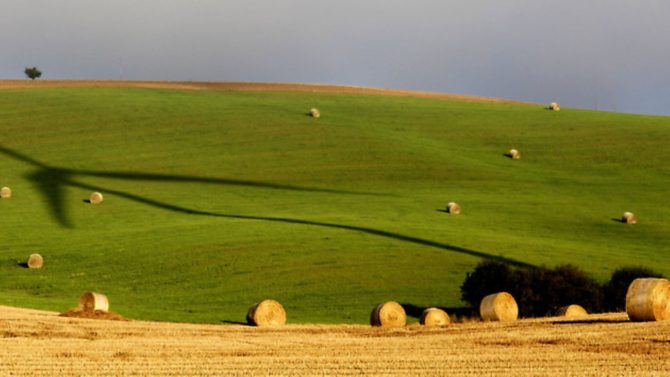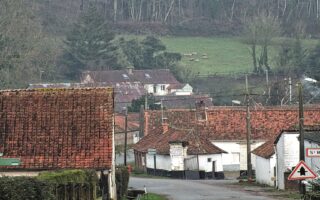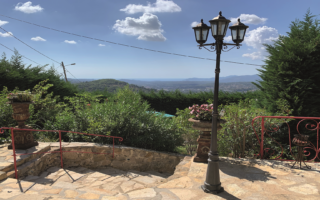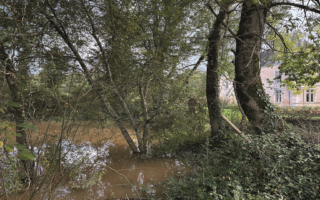Farming in France

Experienced farmers looking to transfer their talents to France should find life on the land challenging but rewarding. Read Lynette Eyb’s guide to get you started
Rural towns and villages built on farming traditions, an abundance of affordable land and good weather all combine to offer a wealth of opportunities for farmers in France. However, buying a farm doesn’t come without its fair share of complications. George Lidbury of Eurofarms says it is important to remember that although France is just across the Channel, it could be, in his words, on another planet. “One must be patient when dealing with the administration as farming can be a very bureaucratic process,” he says. “Even with good school French, people soon realise they need help, and specialised agents can help navigate a system that can be daunting and very time-consuming.”
PURCHASE COSTS
“The cost of buying land obviously depends on the size and type of farm, but average livestock land prices are in the area of €3,000-€4,000 per hectare, which is a bargain compared to the UK or Ireland,” says George.
Marc Sheridan, of Agri-Invest, works with farmers and agricultural investors in the Centre, Limousin, Auvergne and Burgundy regions. He says it’s important to have a realistic budget and advises researching areas most suitable to your type of farming.
“For example, there is virtually no arable production on the Côte d’Azur,” he says. “My experience is that people expect to pay less than they really should. As a guideline, good arable land can exceed €25,000 per hectare, but will be extremely difficult to find, and poor grasslands start at around €3,000. My advice is to be realistic in your aspirations – there are many fees involved and the room for negotiation is limited.”
FINANCING YOUR DREAM FARM HOME
Colin Appleyard is an agent for Leggett Immobilier in Haute-Vienne, the heart of sheep and cattle country, and famous for Limousin cattle and various varieties of sheep. “Cereal-producing farms are more common in Poitou-Charentes, particularly in the Deux-Sèvres department, although cereal production is still a factor in cattle and sheep breeding regions for winter feeding purposes,” he says.
Regardless of the type of farm, he says it’s best to have a budget – and funds – in place before you start your search. “However, there are a number of banks with farm specialists who can be approached to discuss funding requirements,” he says.
Knowing how to take advantage of France’s system of subsidies and grants can be the key to success. In addition to droits à paiement unique (DPU) subsidies on the land (similar to the UK’s single farm payment), subsidies for sheep, cattle, and grassland protection are also available, though all of these are due to be reviewed during 2015.
“Also, find out whether there is potential to gain Young Farmer status – a system for farmers under the age of 40. It comes with advantages such as the availability of low-interest loans and the ability to apply for special subsidies and grants,” he says.
Colin says the timing of a purchase can affect the transfer of any existing subsidies to the new owners, as a mid-May deadline usually applies for these. “It’s also important to seek the advice of an accountant to determine the most cost-effective way to purchase and operate the farm,” he says. “Numerous models are available and the best choice for each purchase depends on individual circumstances, the size of the farm, and so on.”
This decision can have significant tax implications, as well as affect inheritance and succession planning.
THE LOGISTICS OF BUYING
To buy a farm in France, you’ll need to reach an agreement in principle with the seller on the following points:
• The price to be paid for the farm, including house, outbuildings and land
• Any subsidy rights on the land
• what machinery, stock and assets are included in the sale
• The value of any livestock being bought voluntarily, or any cattle that must be bought to protect subsidy transfer rights.
“Immediately after the signing of the compromis de vente and putting a protocol de vente or equivalent agreement in place for machinery, livestock etc, it is necessary to notify SAFER (Société d’Aménagement Foncier d’Etablissement Rural) about the proposed sale, apply for the ‘right to farm’ and apply to join the Young Farmer programme if you are eligible,” says Colin.
“The ‘right to farm’ submission and the SAFER submission take about two months to process. You should seek good technical support to ensure that a transfer of ownership can be achieved before the mid-May deadline for the submission of documentation to the Chambre d’Agriculture to obtain subsidies for that year.”
All the paperwork and bureaucracy, however, is worth the effort, says George Lidbury. “The majority of farmers I have settled wish they had taken the plunge many years earlier.”
www.franklinfarm.fr
www.eurofarms.com
www.france-agri-invest.com
www.leggettfrance.com
Lynette Eyb runs an independent cycling website and holiday database
www.freewheelingfrance.com
Share to: Facebook Twitter LinkedIn Email


